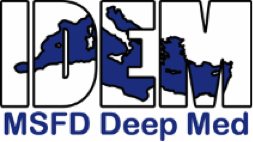The EU policy Marine Strategy Framework Directive (MSFD 2008/56/EC) represents the tool of the EU’s Integrated Maritime Policy to achieve Good Environmental Status (GES) of marine waters by 2020.
The MSFD applies to the area of marine waters over which a Member state exercises jurisdictional rights in accordance with the UNCLOS. This includes deep-sea waters within European exclusive economic zone and includes, as defined by the MSFD, the seabed and subsoil under the water column.
Presently, the implementation of MSFD fails in capturing such huge dimension, being mostly focused on coastal habitats or those reached by fishery activities, like bottom trawling (banned in the Mediterranean below 1000 m, REC.CMGFCM/ 29/2005/1). Monitoring, assessing its environmental status and managing the deep sea, through the implementation of knowledge of ecosystems biodiversity, functions and services, are crucial actions for ensuring the sustainability of neighbouring coastal zones and their resources, which rely on the functioning of deep-sea ecosystems. Indeed, recent studies have demonstrated in the Mediterranean Sea the relevance of the energy transfers from the shallow shelves to the deep basins through processes like dense shelf water cascading (Canals et al. 2006), open sea convection and severe coastal storms. Such event transport sediments, organic matter but also chemicals, litter and huge amounts of suspended particles resulting from the alteration of the seafloor by bottom trawling in the upper slope. Therefore, targeting GES of only the continental shelves, while ignoring the deeper Mediterranean environments, does not satisfies a real ecosystem based approach to EU Seas management and protection. While ecosystem based management is already included in the MSFD, there is currently a lack of standards and harmonized methodology for offshore and deep waters
Website: http://ec.europa.eu/environment/marine/index_en.htm

